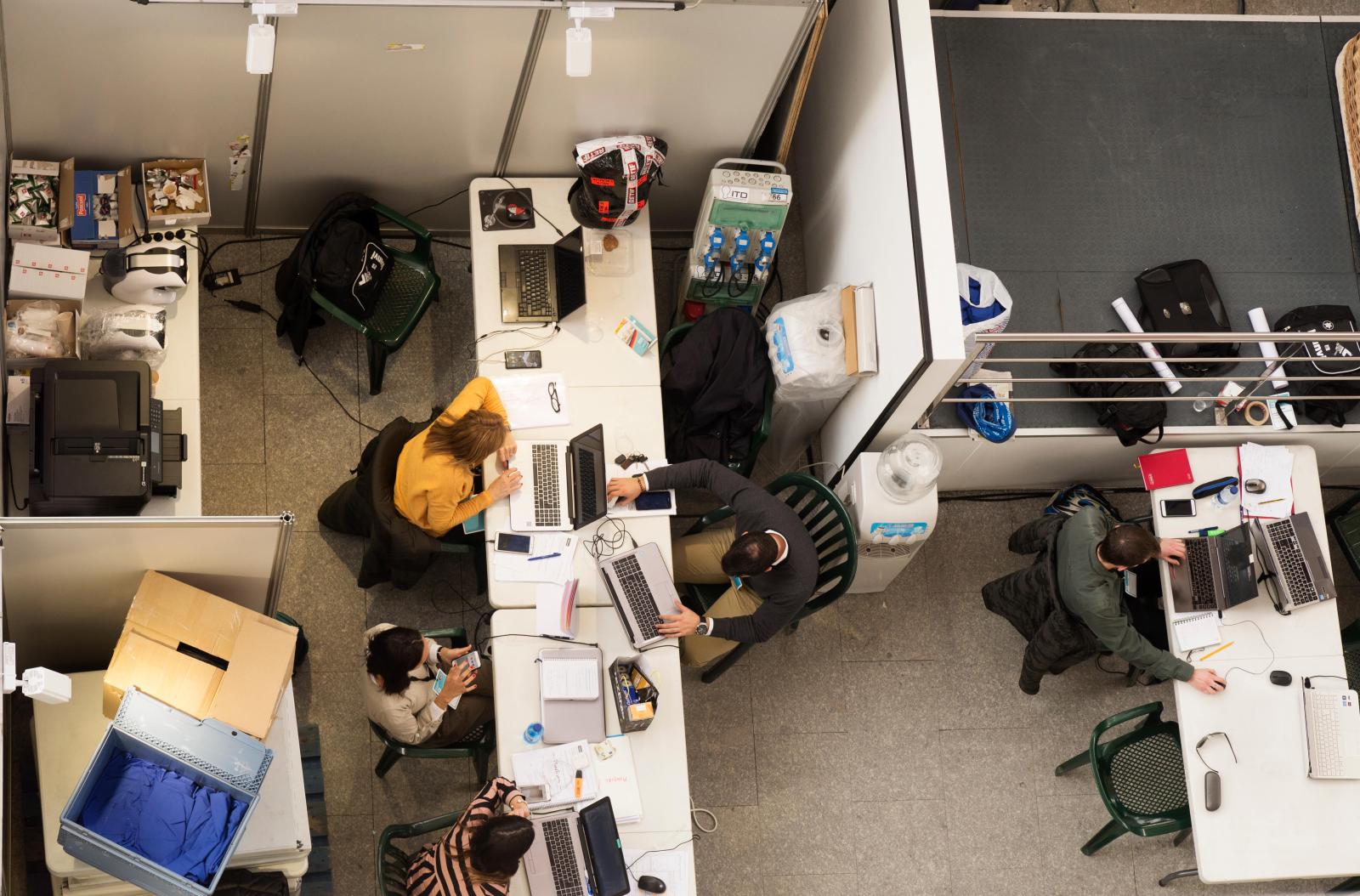Everyone wants to get things done, but it can be hard to predict how long they’ll take. Mathematicians needed three centuries to prove Fermat’s Last Theorem—first proposed around 1637, the solution only came in 1994. Was that remarkably fast, or pathetically slow? What about rebuilding bridges and highways? Construction timelines often seem like testaments of wild optimism. Instagram tells me that in Austin, there’s a restaurant whose Michelin-starred chef spent two years “perfecting” his recipe for a double cheeseburger. I think the claim is meant to impress—here is a true craftsman—but it also made me wonder about the chef’s priorities. How could this task have taken more than a weekend?
To complicate matters, we Americans can’t make up our minds about whether it’s better to work a lot or a little. We flaunt long workweeks and disdain anyone working less than full-time. But we’re likewise seduced by get-rich-quick schemes and “labor-saving” gimmicks. The rich may work long hours, but much of their income is passive, the fruit of asset appreciation and other people’s labor. Students who use ChatGPT to write their term papers probably hope AI won’t take their jobs in ten years.
Amid this uncertainty, we turn to productivity gurus from Ben Franklin to Tim Ferriss (author of The 4-Hour Workweek) who offer a clear, enticing path: follow this method, and you’ll accomplish more than your rivals with less effort. That’s also the promise of Cal Newport’s new book, Slow Productivity, which is aimed at professionals, entrepreneurs, and freelancers—workers in a knowledge economy whose results are hard to quantify. Newport begins by noting that white-collar workplaces often value “pseudo-productivity,” appearing to be busy—sending emails, holding meetings, putting in pins and circling back—without measurable results. Newport’s book is a commercial success (it’s already visited the bestseller lists) but, as other reviewers have noted, an intellectual failure, offering little more than shallow repetitions of ideas from his previous books. There’s a deeper problem, too: Newport’s “me first” ethos suggests that, at a moment when more and more people prefer to work from home, we are no longer sure how to work together.
Newport himself seems to keep pretty busy. He is a professor of computer science at Georgetown University—a day job that’s normally considered full-time, if not all-consuming. In addition, he blogs, hosts a weekly podcast, writes for the New Yorker, and churns out books on how to work. Slow Productivity is his eighth, and his fifth since 2012. (He signed a deal for the first while still in college.) He is also a husband and father of three boys.
In light of this activity, Newport’s three recommended principles of slow productivity—“do fewer things,” “work at a natural pace,” and “obsess over quality”—might call for the caveat, “do as I say, not as I do.” To his credit, Newport doesn’t say outright that these principles worked for him and thus will for you. Still, he does borrow anecdotes from his own life, including how one of his key insights (about what productivity looks like on daily timescales versus longer ones) came while on vacation in Maine; he says he wrote an essay about it on the spot.
Newport’s principles make sense at first glance but fall apart on closer scrutiny. For instance, the second principle, “work at a natural pace,” means that we should “give our important efforts more breathing room, allowing them to take longer and unfold with intensity levels that vary over time.” Expressed this way, it sounds great. I’m not lazy or incompetent, I just work at different levels of intensity, thank you very much. But let’s think about this. Is a slow pace of work, or any pace for that matter, truly “natural”? Newport proposes hunter-gatherers as a model. The force of their labor fluctuates throughout the day; perhaps this is human nature, and we need to work more in tune with it.
But don’t people in agricultural societies—and technological ones—already do this? Haven’t we always? What about Pieter Bruegel’s or Vincent van Gogh’s harvesters napping in the sun? Isn’t your ESPN or eBay browser tab open for a similar reason? And besides, hunter-gatherer societies don’t produce enough food to support knowledge workers and our questionably useful labor. And as Newport admits, only agricultural societies have lengthy festivals and slow seasons. (Though I would add that even then, care work, traditionally done by women, continues apace.) Nature doesn’t know whether it’s Memorial Day weekend. Newport’s advice, then, is no match for the world we’ve constructed.
Slow Productivity is filled with stories of patient geniuses accomplishing great things without breaking a sweat: Isaac Newton, Jane Austen, John McPhee, Jewel. Someone Newport does not mention is Immanuel Kant, born precisely three hundred years ago this April. Already forty-six years old, Kant took a post at the University of Königsberg in 1770, and then produced nothing noteworthy for a decade. He was working on a tome, The Critique of Pure Reason (1781), that would upend every philosophical assumption of its era. Following this breakthrough, Kant produced a cascade of important works on morality, aesthetic judgment, politics, and religion.
One of Kant’s most enduring ideas is the categorical imperative, the notion that the implicit rules you follow in your conduct should only be ones that could serve as universal laws. Kant’s goal was to eliminate the free riders who undermine moral order. On his account, you shouldn’t lie to gain advantage, because if everyone did so, societal trust would break down to the point where deceit would no longer give you an edge. In fact, you couldn’t reliably get ahead at all amid the social chaos. The maxim “lie to get ahead” is self-defeating.
